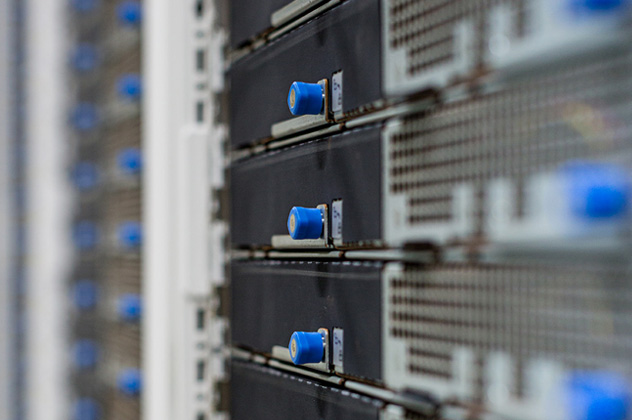Promoting a circular economy in Sweden through automated waste identification

Every year people worldwide consume 100 billion tons of materials—and recycle only 8.6 percent, according to the 2021 Circularity Gap Report . A team from southern Sweden hopes to grow this percentage by improving the automated technologies used to recover resources from the waste stream. The project developed a waste identification testbed that uses AI-enabled sensors and advanced robotics to identify and sort recyclable materials in industrial waste.
Working together to apply IoT technology to waste management
The Waste Identification Testbed arose out of a collaboration between Innovation Skåne and Mobile Heights, two organizations dedicated to bringing business, academia, and the public sector together to innovate for the public good.
Together with partners Invest in Skåne, Norrvidinge, and OP Teknik, and a grant from Microsoft Datacenter Community Development, the team developed an open platform that sensor engineers could use to test their technology in a real waste-sorting environment. The Waste Identification Testbed offers a hardware and software interface between the sensor technology and an existing waste sorting machine, so engineers can easily plug in different sensors and evaluate and compare the speed and accuracy of their performance in different waste streams.
The Waste Identification Testbed project ran between June 2020 and July 2021. During this time, researchers and engineers used the platform to validate and refine sensors to sort reusables from different industrial waste streams—including some technologies that hadn’t been developed for the applied purpose of sorting waste. For example, the team reached out to Lund University researchers to test the world’s fastest camera, developed for the scientific purpose of filming photons. A lab prototype of a sensor using this camera proved successful in identifying difficult-to-detect materials—and the camera costs 20 percent less than the hyperspectral cameras used in sensors today. The team is now exploring partnerships to make the camera commercially available.
Sparking innovation across the industry
The project has sparked innovation beyond the initial testing. For example, a Lund University student, Emil Sandelin, used the testbed for a master’s degree project under the supervision of Professor Karl Johan Åström , widely cited for his work in computer imaging. Sandelin’s project evaluated new methods of instance segmentation, which is the ability to identify where one object ends and another starts—generally easy for humans but quite challenging for computers to distinguish when one object is on top of another. The project was able to improve the accuracy of materials identification by training AI algorithms on the imaging data collected by the testbed project. The new technology, while more accurate, is slower, so current research is refining these new algorithms to improve their speed.
Innovation Skåne also sees a potential application of the technology in the automated sorting of waste on site in hospitals. Hospital waste is a complicated use case, as it carries different levels of exposure to patients. Automated identification and sterilization of reusables could bring recycling to a sector in which most materials currently end up as waste.
Looking ahead to a more sustainable future
Creating a circular economy for materials—and a better market for reused materials—all starts with better identification of materials with better sensors. The Waste Identification Testbed has established a focal point for innovation in waste management. The new technologies promise to increase the supply of reusables entering the materials market, reducing the cost of recycled materials and shifting the economy away from virgin resources. With new private-public partnerships in place, the team hopes to share improved sorting technologies throughout the industry for a more sustainable future.
Related Posts
Inspired by circularity, powered by innovation – Microsoft Circular Centers scale sustainability – Microsoft Local Learn how Microsoft Circular Centers are scaling cloud supply chain sustainability | Azure Blog and Updates | Microsoft Azure Driving change in European and South Africa datacenter communities to ensure a sustainable future – Microsoft Local (mentions Innovation Skåne)

